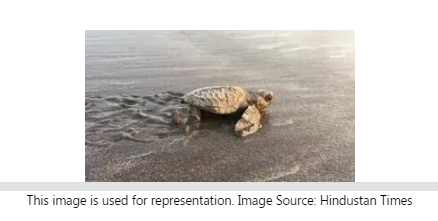The Ministry of Environment, Forest and Climate Change has recently launched the national marine turtle action plan. This action was launched by the Union Minister of Environment, Forest and Climate Change, Prakash Javadekar during a virtual event. The ministry has also released ‘Marine Mega Fauna Stranding Guidelines’. This information was stated in a press release shared by the Ministry. The press release further mentions that since both floral and faunal diversity including marine biodiversity comprises the beauty of India and therefore it is important to conserve them with possible action.
India comprises rich marine biodiversity along a vast coastline of more than 7500 km. It consists of various animals such as fish, sharks, turtles and mammals like whales, dolphins among others. The rich marine habitat not only provides adequate resources to these species but also responsible for the well-being of humans. The livelihood of millions depends on these resources like trade and transport, food, tourism are few of them.
However, despite its importance in the economic, ecological and cultural values, marine species such as turtles face a lot of challenges such as stranding and entanglement. It is important to initiate actions so that steps can be taken to conserve these species and their habitats. To address this issue, these documents have been launched so that a proper action plan to conserve these marine species can be taken.
The release further states that these documents that are released by the Ministry contain ways and means to not only promote inter-sectoral action for conservation but also help in improving the coordination among the government, civil society and other stakeholders guiding them better to manage the cases of stranding, entanglement, injury or mortality of marine mammals and also conservation of marine turtles.
These two documents highlight actions to be taken in the following cases:
• For handling stranded animals on the shore
• For handling stranded or entangled animals in the sea or on a boat, Management actions for improved coordination.
• Reducing threats to marine species and their habitats.
• Rehabilitation of degraded habitats.
• Enhancing people’s participation. • Advance scientific research and exchange of information on marine mammals and marine turtles and their habitats.

